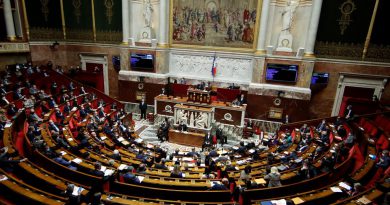Belgium Balances AI Growth with Energy Innovation
Belgium is taking proactive steps to balance its booming AI-driven data centre growth with sustainable energy management, ensuring innovation and industrial progress go hand in hand.
Belgium’s Smart Strategy for the AI Power Boom
As artificial intelligence (AI) rapidly transforms global industries, Belgium is emerging as a country determined to manage this technological wave responsibly. The nation’s grid operator, Elia Group SA, has proposed a forward-thinking plan to ensure that the rising power demands from data centres—driven by AI expansion—do not overwhelm the national electricity grid.
Under the proposal, data centres would form a new, distinct energy category, allowing Elia to allocate electricity within defined limits. This move aims to balance energy access across all industries while ensuring Belgium remains an attractive hub for AI investments. The strategy demonstrates how a small European nation can pioneer intelligent regulation that supports both innovation and sustainability.
The demand for AI computing has caused data centre electricity needs to skyrocket worldwide. These facilities, essential for training and operating large-scale AI models, are some of the most energy-intensive infrastructures globally.
By introducing this reform, Belgium ensures that energy-intensive digital infrastructure can grow without jeopardizing the stability of its power network or blocking other vital sectors from accessing electricity.
Managing Growth Without Sacrificing Sustainability
Belgium’s proposed reforms reflect a strong commitment to sustainable growth. Instead of stifling innovation, the approach aims to distribute resources fairly. Elia emphasized that this measure would help prevent “speculative developments” that may not materialize from occupying valuable grid space.
Requests for new data centre connections have surged ninefold since 2022, according to Elia. By 2034, projected energy demand from these facilities could exceed 16 terawatt-hours, far beyond earlier forecasts. The country’s energy ministry acknowledges that such demand levels were never anticipated during earlier grid development planning.
Energy Minister Mathieu Bihet has vowed to review and incorporate data centre consumption trends into the 2028–2038 federal grid development plan. His commitment highlights Belgium’s long-term approach to integrating AI growth with responsible energy management, ensuring the digital revolution complements rather than competes with industrial development.
Belgium’s stance is part of a broader European effort to ensure that the digital economy aligns with sustainability goals, protecting the grid’s integrity while meeting the demands of high-tech industries.
Tech Giants Fuel Belgium’s AI Future
International tech companies have taken notice of Belgium’s stable and innovative infrastructure. Google, one of the world’s largest technology firms, plans to invest nearly €5 billion ($5.8 billion) to expand its data centre campuses across the country.
The investment is part of Google’s broader effort to support its growing AI strategy, and it underscores Belgium’s appeal as a European hub for advanced computing infrastructure.
The government’s willingness to engage with such major players while setting clear energy boundaries sends a strong message: Belgium welcomes innovation, but not at the cost of sustainability. This balance is likely to attract more tech companies seeking stable, responsible growth environments.
In parallel, grid flexibility remains part of the plan. Elia’s system would allow for “flexible connections”, meaning that in times of grid congestion, some data centres could temporarily reduce their energy use without disrupting national supply. Such measures reflect a sophisticated understanding of how to manage fluctuating power needs without impeding industrial activity.
A Model for the Global Energy-AI Nexus
Belgium’s response to the AI-driven energy surge could serve as a model for other nations grappling with similar challenges. As AI reshapes economies, governments worldwide face growing pressure to accommodate the immense energy requirements of machine learning and data storage facilities.
Belgium’s approach—transparent, consultative, and grounded in forward-looking policy—offers a blueprint for balancing technological ambition with ecological responsibility.
It demonstrates that sustainability and innovation are not opposing forces but partners in progress.
With its careful reforms, clear communication, and strategic collaboration with industry leaders, Belgium is setting an example of how a country can responsibly manage the digital transformation sweeping across the globe.
As AI continues to evolve, Belgium’s balanced framework shows how governments can power the future while keeping their energy ecosystems resilient, inclusive, and sustainable.



